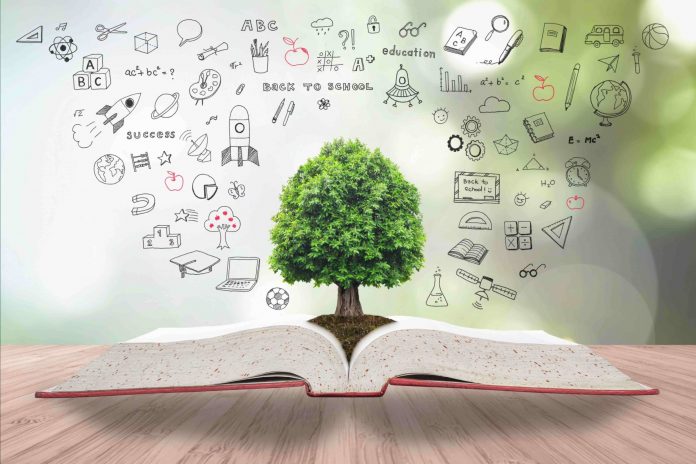This article has been written by Meenakshi Mishra pursuing a Startup Generalist & Virtual Assistant Training Program course from Skill Arbitrage.
This article has been edited and published by Shashwat Kaushik.
Table of Contents
Introduction
On July 31, 2008, a public limited company, National Skill Development Corporation (NSDC), entered the scenario under Section 25 of the Companies Act, 1956. It was set up by the Ministry of Finance as a Public Private Partnership (PPP) model. The organisation is working on the theme of Skill India. The main aim of the organisation is skill development by establishing vocational institutes. This is one of the steps taken by the government to decrease unemployment in the country by increasing the skilled workforce. Satisfied and successful individuals make up a progressive and developed society. In the development of an individual as a successful person, education and skill development play a vital role.
Education can be considered a social activity that is a purposeful, organised, planned and systematic approach to imparting knowledge. A nation requires knowledgeable talents and versatile skills for its overall development. Education can work towards world peace, human development, scientific knowledge, entrepreneurship and economic growth.
Education is about teaching and nurturing young minds; it is responsible for the development of human civilization.
In modern-day society, the interrelationship of education and societal change has taken a central position. Education and societal change are reciprocal. Education nurtures knowledge, skill sets, values, morals and principles in a child, which shapes their social wellbeing. Conversely, a change in social structure brings changes in the structure, composition, content and technique of delivering education.
Education enlightens the path of an individual through the walk of life by bridging cultural, social and regional divides and building a peaceful society.
Education system in India
For a developed nation, the prime determining factor is education. India had world-renowned universities like Nalanda and Takshila in the past. But slowly, as time passed, our education system changed its look and there appeared to be a gap between our education system and its adaptability in real life. During British rule, India suffered major stagnation in every field. Education was also one of them. However, during later periods of rule, the British introduced an education system in India that was out of reach of the common people of India. After independence, education was included in the concurrent list of the Indian Constitution in the 42nd Amendment of the Indian Constitution in 1976. Since independence, numerous plans, programmes and schemes have been introduced for the betterment of the citizens of India. Samagra Shiksha and Rashtriya Uchchatar Shiksha Abhiyan were a few of the efforts in this direction. But, to make India a developed nation, new age learning has to be introduced. It was said
“The destiny of India is now being shaped in her classrooms. This, we believe, is no mere rhetoric. In a world based on science and technology, it is education that determines the level of prosperity, welfare, and security of the people.”
Kothari Commission Report, 1966
Our government is aware of the importance of education so after independence, from time to time, various commissions came to make advancements in the field of education.
As quoted by our Prime Minister, Mr. Narendra Modi
“A society that does not give importance to education cannot progress. Let there be any government; it must have a vision to make India shine in the field of education.”
As we know that the global ecosystem is changing at a faster pace, it has become important that children not only learn but also learn how to learn. It should have less focus on content and direct students towards learning and developing qualities like critical thinking and problem-solving. A gap was found in our educational system and the need for reform was suggested. The government suggested having an education system by 2040 that is second to none. The National Education Policy 2020 is introduced as the first education policy of the 21st century. The policy satisfies the goals of 21st century education, including SDG 4. The NPE aimed to address the challenges faced by the education system and provide a framework for its future development. It focused on expanding access to education, improving the quality of education, and making education more relevant to the needs of society. The NPE also emphasised the importance of vocational education and skill development.
The Right to Education Act (RTE), enacted in 2009, was a landmark piece of legislation that guaranteed the right to free and compulsory education for all children aged 6 to 14 years. The RTE Act aimed to address the issue of educational inequality and ensure that every child had the opportunity to receive a quality education.
These commissions and initiatives have significantly contributed to the development of education in India. They have helped to improve access to education, enhance the quality of education, and make education more inclusive and equitable. As a result, India has made significant progress in achieving the goal of universal education.
Role of education in social change
Education is a powerful instrument to bring about social revolution. If we want to bring about social change, we have to educate all age groups. Teachers, instructors and educational institutions are the agents through whom change can be brought about.
The relationship between education and social change is a two-way path. It can change social conditions and be affected by social change. According to the needs and changes in society, the structure of education changes. Thus, we can say that education can act as a
Education can be used as an instrument for social change. Education supports and shows direction for solving problems related to the economy, social issues, etc. Education leads to an increase in the skilled population. The outlook of society can be changed by properly educating it.
Role of education in modern India
Considering the efforts of the Indian government towards the betterment of education and skill development in the young generation of the country, various factors are taken care of. Some of them are:
Developing and preserving cultural and scientific values
Education should have scientific values incorporated into the personality of an individual as a whole, not some part of it. In a country like India with diverse geographical and physical features, education facilitates harmony between people living in various regions who have faith in various religions. Education can only preserve the cultural heritage of a country.
Making a cultured society
Various issues related to the environment and social concerns can be incorporated into the curriculum to teach children values. By educating children about the earth, natural resources, global warming, climate change and social issues like child labour, child marriage, gender equality and dowry, the attention of the students can be grabbed. This can lay the foundation of a good society. Education should encourage critical thinking in students.
Promoting international understanding
Education can help in intercultural exchange and collaboration by introducing learners to various languages, historical events, cultures and traditions.
Democratic values
Democratic values can be fostered in children by properly educating them. Critical thinking, decision-making and civic participation can be encouraged in citizens through education. A democracy can only be successful if its citizens are aware of their rights and responsibilities. Civic education, human rights education and media literacy develop critical thinking and a sense of civic awareness.
Social integration
Education helps maintain social harmony in society by encouraging social integration and decreasing social disparity. It develops scientific viewpoints in life and teaches social justice and civic responsibility. Children of all castes, religions and economic standards study together in a classroom. This is the place to share their thoughts and traditions. Thus dismantling the social barriers of caste and creed and making a more egalitarian society.
Modernisation of the society
Modernization and digitalization of society are shaping the education sector. With the advent of virtual classrooms, digital material and online classroom systems, the shape of the education sector has been moulded. Technological advancement has redefined learning paradigms.
Economic growth
Education should make individuals skilled enough to meet the needs of the workplace and industries. Skill development would satisfy the needs of industry, agriculture, trade and commerce. The Skill India mission of the government is working in this direction and teaches students leadership and entrepreneurship skills. The new education policy has introduced many skill subjects as a part of the school curriculum to produce skilled personnel. This paves the path for economic development.
Social evils
Many social evils prevail in society due to a lack of education and the blind faith of the people. Indian society from ancient times had many social evils for which many great leaders worked, like child marriage, child labour, female infanticide, domestic violence and dowry. Most people, due to illiteracy, get trapped in superstitions.
Importance of education for a unified and harmonious nation
Education is the key point that can make the foundation of a society stronger. Although education is a powerful tool for changing society, there are certain other factors, like policies, the interests of people, and economic development, that affect growth prospects.
Education motivates children to become dynamic and broad-minded. In India, educational institutions of various cultural groups reflect their values; here, the responsibility of a teacher increases in terms of imparting quality and valued education.
Conclusion
Since ancient times, education has played a pivotal role in the development of mankind. It leads to the holistic development of an individual. A good education system can mould society in a better way. It can identify problems and their solutions for the betterment of human beings.
In our country, with the advent of the new education policy, focus is given to early childhood education. It is the critical phase of an individual’s life when social, emotional, cognitive and physical development occur.
Education has a multifaceted value in the life of an individual. It teaches a range of curricula, skills and social interaction to the young generation. It acts as a resource that urges us to think and make sensible decisions. Education teaches us to be disciplined, respectful, and broad-minded individuals. Investing in education can build a nation, ensuring its peace and prosperity.
References
- https://www.pioneershiksha.com/news/3085-role-of-education-in-social-change.html#:~:text=Education%20is%20an%20important%20instrument,social%20change%20in%20Indian%20society.
- https://www.clearias.com/education-in-india/#sustainable-development-goals-sdg-related-to-education
- https://testbook.com/ias-preparation/education-and-social-change
- https://wishesandblessings.net/blog/8-ways-how-education-can-help-to-eradicate-social-evils/#:~:text=It%20helps%20in%20the%20identification,well%2Dbeing%20of%20the%20individual.
- https://www.drishtiias.com/blog/role-of-education-in-promoting-national-unity
- https://www.projecttopics.com/blog/the-role-of-education-in-dealing-with-social-issues/
- https://www.education.gov.in/sites/upload_files/mhrd/files/reform_education_2014-20.pdf
- https://files.eric.ed.gov/fulltext/ED566248.pdf
- https://www.egyankosh.ac.in/bitstream/123456789/68585/1/Unit-11.pdf
- https://physicscatalyst.com/graduation/role-of-education-in-indian-society/
- https://bdu.ac.in/cde/docs/ebooks/B-Ed/I/CONTEMPORARY%20INDIA%20AND%20EDUCATION.pdf
- https://www.education.gov.in/sites/upload_files/mhrd/files/NEP_Final_English_0.pdf
 Serato DJ Crack 2025Serato DJ PRO Crack
Serato DJ Crack 2025Serato DJ PRO Crack










 Allow notifications
Allow notifications


